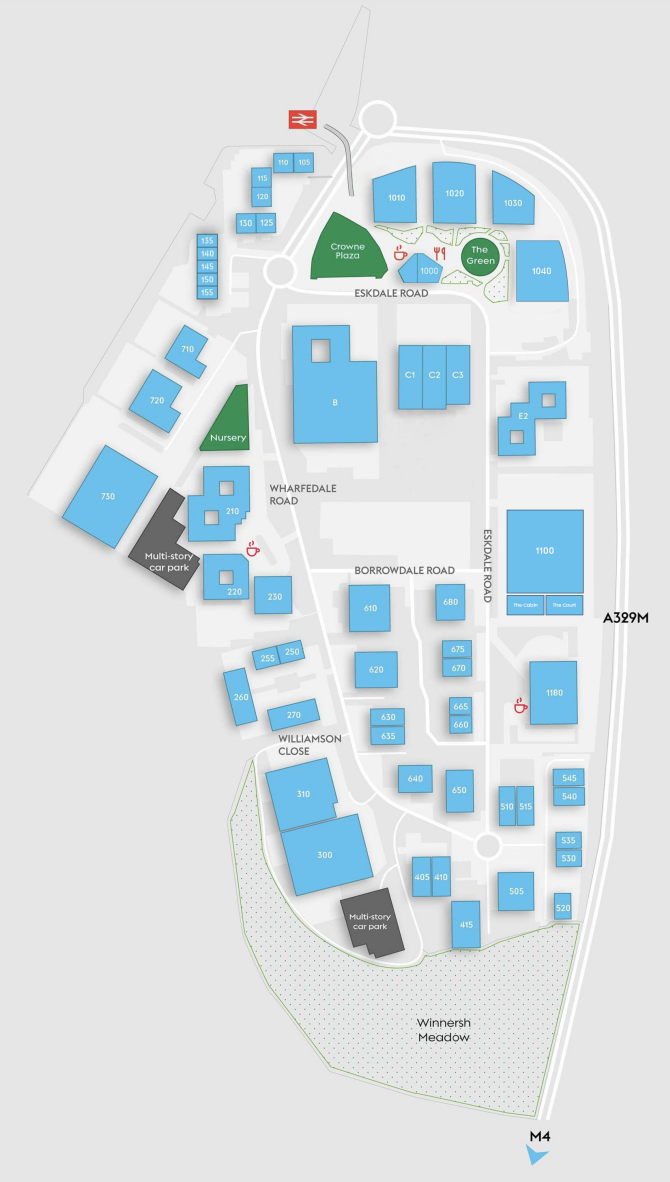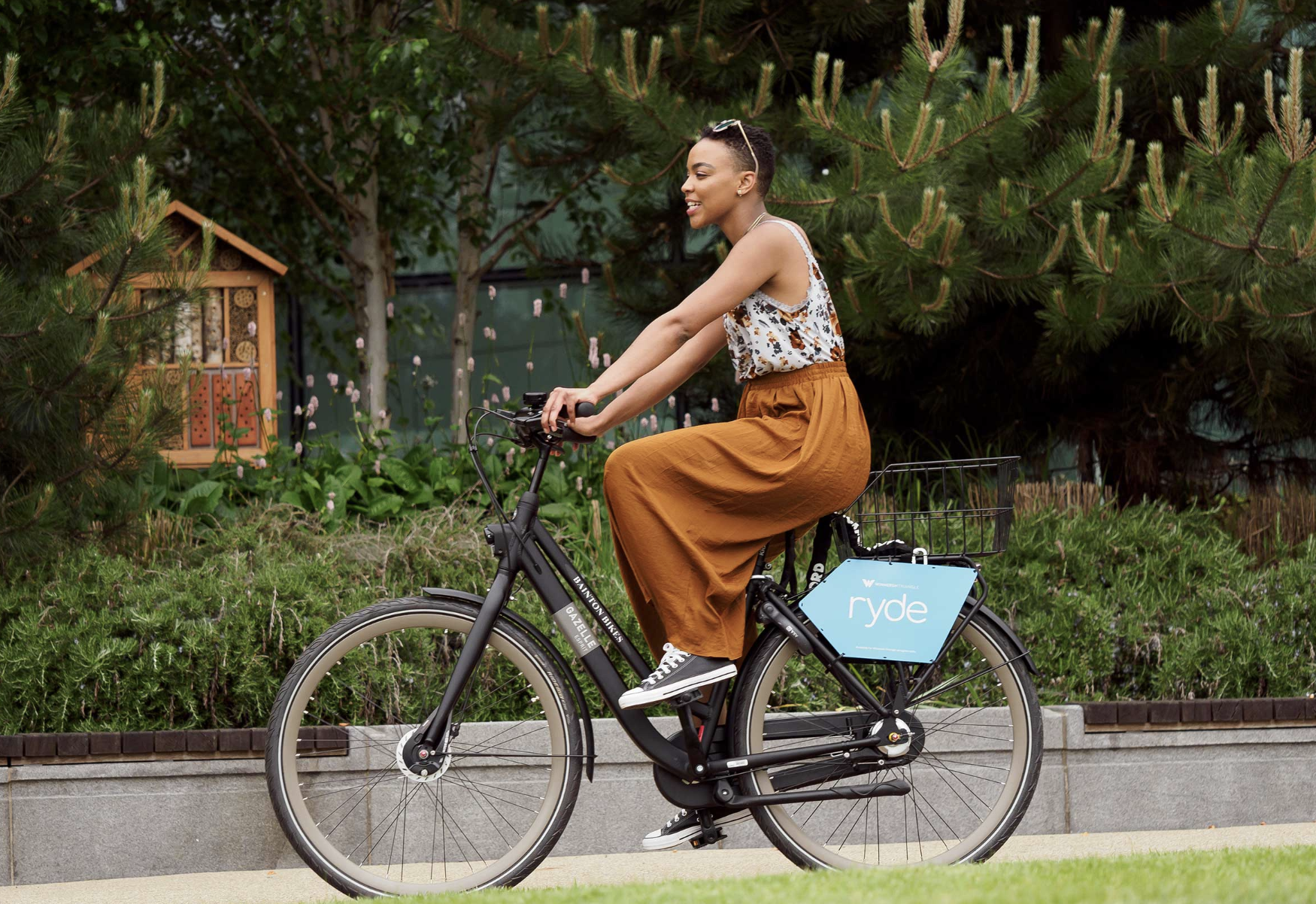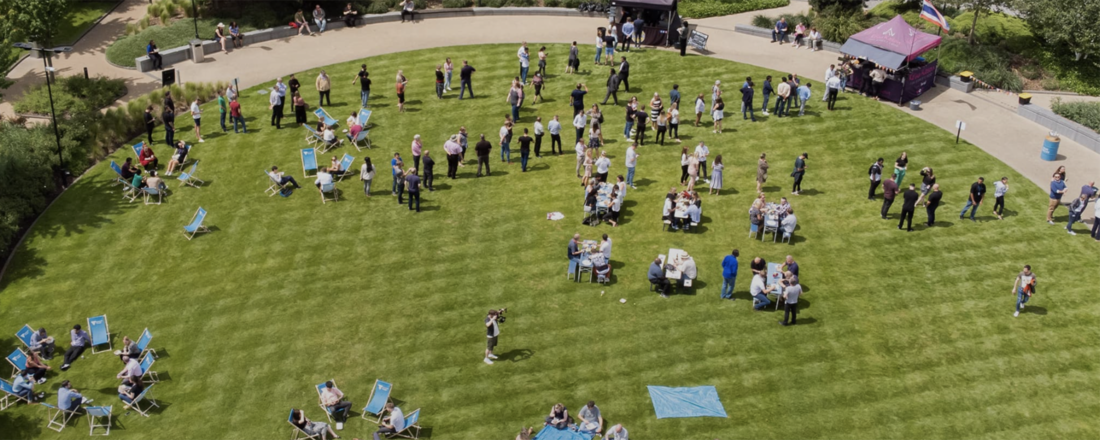Get updates from The Developer straight to your inbox Yes, please!
Frasers Property: “We need to rise to these challenges”
The business park fell out of popularity because they became sterile environments, says Ilaria del Beato, CEO of Frasers Property in the UK, who believes connectivity and leisure amenities are key to their comeback

“Clearly there are some question marks around how offices are used in the future,” says Ilaria del Beato, CEO of Frasers Property in the UK. “Our offices will have to become more agile.”
In an interview for The Developer Podcast, del Beato describes Frasers’ speciality as sheds, beds and desks, both in and out of town. It’s the sheds – in particular logistics spaces – that are seeing the biggest growth in rental prices in a post-Covid world. The office market is more of a challenge – “But those challenges give us an opportunity,” says del Beato. “Given our exposure as a business and understanding of office space, we need to rise to the challenges.”
For the UK division of Frasers Property – a Singapore multinational – that includes the challenge of the business park. How do we reimagine these car-dominant, out-of-town office complexes for a post-Covid world? Who wants to work in a business park?
“The business park has had a rough ride over the last 10 to 15 years and has fallen out of popularity, but I think that’s because they became very sterile environments,” says del Beato.
Frasers owns 6 business parks, “all of which have scale,” says del Beato. “They are all upwards of 500,000 sq ft across a combination of office, industrial, R&D and different types of space. They are all in significant single ownership – we can control them. And that’s important, you need to have scale and single ownership to create the placemaking and thereby create places that employers want to be in, and employees want to come and work.”
“Where you have scale and single ownership, you can provide amenities,” says del Beato, listing connectivity and the on-site provision of a mix of fun and useful functions – many with links to wellbeing – as critical factors in enabling business parks to compete with city-centre locations.
“Landscaping, walkways, running tracks… so people at lunchtime can go for a walk or run, eat their sandwich, do whatever they want to do.” del Beato feels it’s important to have places to go nearby outside the office environment to unwind, work or have a conversation about business.
The sales pitch includes a dedicated railway station with links to central London, plus a bike hire, charging points and provisions such as the on-site day nursery, gym, sports and wellness centres
At Winnesh Triangle Business Park in Reading, the sales pitch includes a dedicated railway station with links to central London, plus a bike hire, charging points and provisions such as the on-site day nursery, gym, sports and wellness centres. The marketing is promising something akin to a Silicon Valley campus, but with a mix of tenancies and uses. The masterplan still looks like a business park with big buildings and parking lots, but at the micro scale, there’s the promise of lawns, streetfood market stalls, cafes and wildflower meadows for bees.
Frasers Property has achieved Fitwel certification for Winnersh, Chineham Park in Basingstoke, and Farnborough Business Park – the latter achieving the world-first three-star rating. Fitwel Commercial Site certification assesses public realm access and pedestrian connectivity, proximity to open spaces, outdoor fitness areas and community destinations, healthy food, social resilience, occupant safety and emergency preparedness.
Another advantage of the business park, says del Beato, is the ability to flex for tenants. With the trend in tenancies becoming shorter and more flexible, there’s an advantage to having other spaces nearby. “If someone wants to downsize you can find space for them. The main priority is keeping them.”
“We think there has to be a different relationship between property owners and tenants,” says del Beato. “It has to be a closer partnership. The idea of an old-fashioned landlord who collects the rent once a month….”


Part of that partnership, says del Beato, means working together to achieve net zero carbon. “How can we operate properties better… and support our tenants and employees on their sustainability journey? For us, that means having all our EPCs in place, that we set standards for the refurbishment of our buildings so we get to BREEAM Very Good or Excellent, and we’re also focussing on BREEAM in use.”
“We’ve made a significant commitment to solar. We’re in the process of fitting solar panels across the portfolio and creating a renewable energy stream as part of that…. The next stage is engaging with our tenants on scope 3 emissions and their carbon usage and how they can manage that better.
“We now have 25% of our occupiers committed to net zero, so working with them to help them with that journey is part of how we see our new role as a property owner.”
As for the future of the office, de Beato says the way we fit out spaces is changing. “Rather than creating big open-plan spaces, we are creating more meeting rooms, more collaborative spaces, more telephone points, and better technology – that needs to work really well. When you’re doing a meeting and members of your team are dialling in, with advisors on the phone and in the room, the tech needs to work really well. Really slick.”
“We need to create places that attract and retain talent,” del Beato says.
Subscribe to The Developer Podcast wherever you get your podcasts, and sign up to The Developer Weekly email to find out when new episodes go live. You can support our podcast on Patreon at www.patreon.com/thedeveloperuk
If you love what we do, support us
Ask your organisation to become a member, buy tickets to our events or support us on Patreon
Sign up to our newsletter
Get updates from The Developer straight to your inbox
Thanks to our organisation members
Become a member
© Festival of Place - Tweak Ltd., 124 City Road, London, EC1V 2NX. Tel: 020 3326 7238
